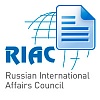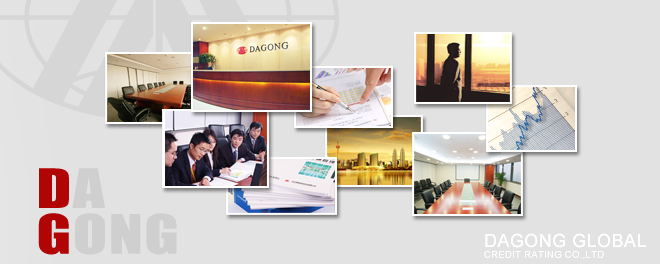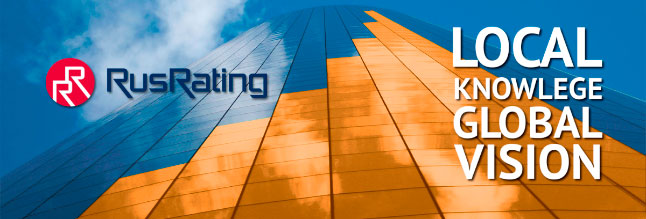Credit Rating Agencies: Referees or Top Players?
In
Login if you are already registered
(no votes) |
(0 votes) |
Authors: Ernesto Gallo is a tutor of business, law and social sciences at Kaplan International College, London. Giovanni Biava is an analyst with Group Repowe, an energy company operating in Europe.
This summer sovereign rating agencies have been quite active; in particular, Moody’s has disturbed the sleep of many Europeans. On 5 August the US-based agency slashed France’s growth forecast to a modest 0.6%; few days later, it was Italy’s turn, with a cut to a depressing -0.1%, which would mark Italy’s third consecutive year of recession. Should we worry about it? Why is credit rating regarded as so important? Why does one agency come out of the blue in mid-August and draws the attention of the media, politics, and businesses? What game are sovereign credit rating agencies playing? Shouldn’t they just act as impartial referees?
The three major credit rating agencies (the ‘Big Three’) are USA-based and naturally express American values on credit and reliability. Fitch is partly owned by a French group and has headquarters in London as well, but can hardly be considered ‘different’ from the other two, and is anyway the smallest of them. All three are regarded as expression of the primacy of financial economy, and in many ways they are. A look at their ownership is quite telling. Standard & Poor’s is owned by McGraw Hill-Financial, a large conglomerate with core business in publishing. McGraw Hill’s shareholders are though mainly financial institutions; as of 22 August, Capital World, FMR, The Vanguard Group, and State Street, would be the four biggest of them. Moody’s looks incredibly similar. Its main shareholder is Berkshire Hathaway, Mr Buffett’s conglomerate, with a share of 11.68% (as of 30 June). Capital Group and The Vanguard are number two and three in the list; BlackRock controls 2.35%, Morgan Stanley has a 1.83% share. In other words, a number of obscure and little-known players with mighty financial interests and a huge amount of capital control the core of the two major rating agencies. Fitch is no exception; 50% of it is in the hands of a French holding, and the remaining part, in those of another media giant, New York’s Hearst Corporation.

ontonix.blogspot.com
How can such agencies’ rating be ‘neutral’ and ‘objective’? How can they be unbiased when they assess USA credit rating, if we consider that their owners are major players in the American economy? For example, the rating of the USA is AA+ for S&P and AAA for the other two, despite the fact that US public debt amounts to 106.5% of its Gdp, and the USA is the world’s biggest borrower. Brazil, India, and Russia, whose public debt is far smaller, are rated BBB- (one notch above ‘junk’ status) by Standard & Poor’s, mainly because of their recent economic slowdown. Even an American commentator, the economist, Paul Krugman, has repeatedly denounced agencies’ biases and accused them of adopting political criteria, as he clearly stated in ‘The Plot Against France’ (10 November 2013, The New York Times). Credit rating agencies, in his view, would favour IMF-backed structural reforms and austerity policies; any opponent of this neoliberal vision, which has already showed its limits in the 2007-10 crisis, would be penalised or even downgraded.
Are there alternatives? Yes. China has not stood by and has launched Dagong Global, which claims to assess ‘economic’ (and not just ‘financial’) aspects and to represent a more global and less Eurocentric viewpoint. In addition, Dagong is already co-operating with Russia’s RusRating and an independent US agency, Egan Jones; altogether they form the Universal Credit Rating Group (UCRG). New credit rating groups are cropping up in emerging countries, a fact which confirms how oppressive and unfair the US-led system is perceived. The USA itself has attempted to enhance regulations, but no real effort has been made to break up the ‘Big Three’ oligopoly. After all, the US administration does not seem to have the power to curb strongly vested interests. More regulation would also make credit rating agencies more dependent on US power, and perhaps then more inclined to accommodate its interests. The EU, for its part, has worked quite intensively on credit rating regulation, but has not come up with the most important proposal, that is, establishing a competitive EU agency. In contrast, Europe remains anchored to America’s ‘Big Three’, and has more recently welcomed new and non-European institutions such as Dagong Europe, based in Milan. Italy, France, Spain, and other states, have often complained about the downgrades, but little has been done to change the current system.
A public EU credit rating agency, with strong guarantees of independence, could in fact be a good solution for Europe and set a model for other regions of the world. More comprehensive criteria, based on a sound evaluation of the whole economic system of a country, would be important as well. In Europe’s case, now might be too late; the financial and economic crisis has devastated its economy’s fabric. In addition, an independent EU agency was launched by the German consultant, Roland Berger, who (2010-13) seeked 30 investors to set up a foundation with an initial capital of some 300 million euro. After three years of efforts, Berger and his partners had to give up (1 May 2013); their fight against the vested interests of the ‘Big Three’ had failed. Asia, by contrast, is far more ‘on time’; on 23 June 2014, Beijing hosted a forum with the aim of organising an Asian credit system; among the guests, there were prominent international personalities who will be members of the Advisory Council of UCRG, such as former Prime Ministers Rudd (Australia), Aziz (Pakistan), de Villepin (France!), and former Russian Foreign Secretary, Ivanov.
At the global level, a universal agency, backed by the United Nations or a similar organisation with ‘global’ purposes, and working with globally recognised criteria and a world supervision system, could probably represent the best solution. Is such simple project bound to become another utopia? Perhaps it is, unless the UN will fight back for their role of global political player, equally representing all the peoples in the world.
(no votes) |
(0 votes) |






